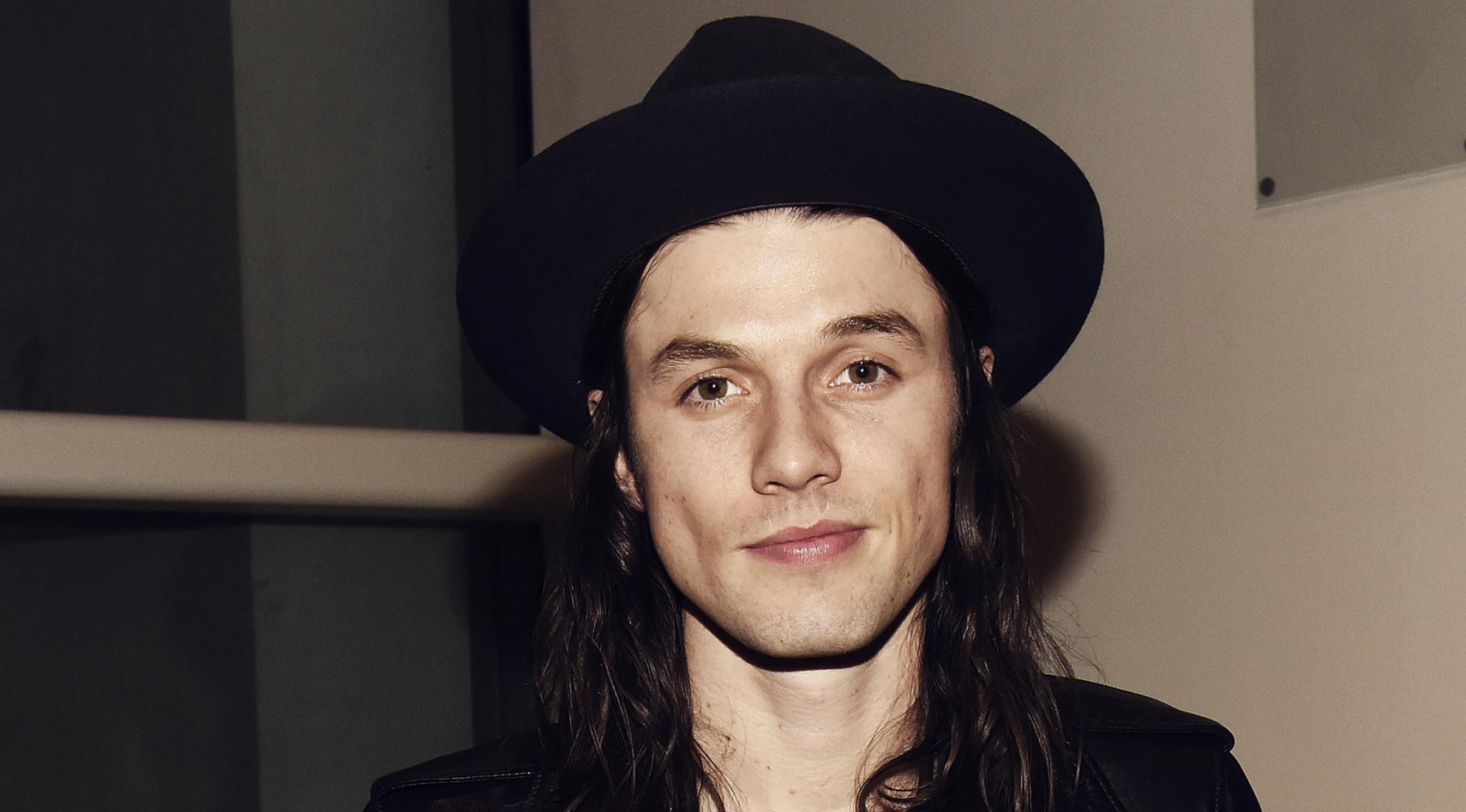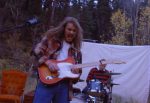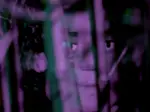While British singer-songwriter James Bay’s first album, “Chaos and the Calm,” was a little folksy, a little wistful and a little more acoustic-based, his newest offering, “Electric Light,” veers slightly into synth-pop territory while still managing to retain his rock ‘n’ roll musicality.
Bay has a gorgeous baritone, fearlessly navigating sudden transitions from low humming to crackly growls to crescendo-like belts. He exhibits this fantastic range while maintaining complete control over his vocals, making this an album where the poetic lyricism and musicality are equally as strong as the voice delivering them.
Sonically speaking, “Electric Light” alternates between two distinct sounds and themes that can best be divided into two categories: love songs, which have the familiar soft folk rock tones of “Chaos and the Calm,” or dulcet piano accompaniment; and lust songs, with their vibrating synth and bass and pop rock bravado.
Instead of going through the songs in the album’s chronological order, I’ll analyze them using the framework of these two categories to judge each kind on their own merits. Whether one portion of the songs is stronger than the other is ultimately up to your tastes, but I felt that the “lust” songs were more engaging and dynamic than the “love” songs.
Lust Songs
“Electric Light” improves on its predecessor with more sophisticated and stylized production. The synthesizer is an especially welcome addition, giving the album what it needs to make a fully fledged genre jump.
After an intro track that hints at a story of a relationship that’s run its course, the audio dissolves into “Wasted On Each Other,” a rousing opening that kicks off the lusty half of the album. The guitar growls and the percussions thump as Bay sings “You build me up, then in the same breath / You knock me down / You turn me on, and just as quick / You might kick me out”.
Next is the surly, stubborn and infectious second track, “Pink Lemonade.” It’s my favorite song on the album, with an opening riff that deepens into a jump-shake dance beat.
Here, Bay is at his most forbidding, warning a lover not to get too involved. “Don’t fall into my arms / I’ll only disappoint you (I’ll let you down).” It’s the song of a no-strings-attached summer, as Bay insists, singing, “I’m protecting you / From what I don’t wanna have to say.”
In “Wild Love,” the pairing of a gospel choir and ‘80s synth creates a track oozing with passion.
The song remains reserved for the majority of its three minutes, grounded by Bay’s smooth vocals. Then it hits the last chorus and crescendos, Bay raising his voice to echo the wild, uninhibited love he’s promising. Those are among the most satisfying bars on the album.
A few songs later, “Sugar Drunk High” offers a funky mid-tempo callback to adolescence. It evokes the flavors, sounds and feelings of youth with lyrics like, “We were just kids, living young and naive / running round streets like a king and queen / gaslight flickered in your eyes / what a dream.”
“Sugar Drunk High” is the same feeling you get from listening to this song; it’s time travel through sound, a reminiscing of hazy summer nights.
The penultimate song, “Fade Out,” is the album’s sultriest. It’s a confrontation and a beckoning — the perfect fit for what Bay set out to achieve with the album’s first three offerings.
The result is a clubby, pseudo-drunken sound, and Bay’s falsetto makes for an irresistible chorus. The track peaks with Bay’s lazy delivery of a flirty accusation, “You only love me in the fade out.”
Love Songs
Over in the realm of Bay’s love songs, I’m less excited, but there are still a handful that I play on repeat, which I can’t say for “Us,” the album’s first single. It feels strangely unmemorable and doesn’t engage as much as the preceding trifecta of “Wasted On Each Other,” “Pink Lemonade” and “Wild Love.”
In fact, the thematic and musical departure is striking. It’s a watered-down radio single, only slightly bettered by a non-album duet version featuring Alicia Keys.
Following “Us,” “In My Head” is a fun gospel sing-along, the chorus a cacophony of odds and ends; you might hear a kazoo here and a tambourine there, but the result is less kindergarten music class and more endearing love song.
You can tell Bay is having fun with this one, as he hollers out, “I’m gonna get you in my head / in my head, in my head,” with a wide smile in his voice.
As a spoken interlude segues into “Just For Tonight,” the album picks up again. It still hasn’t regained the hook of those first three songs, but “Just For Tonight” is a great narrative transition from the album’s intermission.
The conceptual premise of “Electric Light” is slightly inchoate, but its ambiguity leaves the songs up for the listener’s interpretation, lending it depth and universality.
“Wanderlust” is another standout. It’s an apology and an admission of regret for wanting to be somewhere that your love isn’t, as Bay sings, “I didn’t wanna be here / I didn’t wanna be here without you / But every one of us, every one of us got wanderlust.”
Bay understands the wistful push and pull away from a person and toward a place. That place might not be an exact location; it could be a frame of mind or in the arms of another, but Bay’s beachy crooning evokes a sprawling sea or a looming mountain range.
The following song is “I Found You,” a Sunday morning type of song that you’d listen to with a cup of coffee and a breeze spilling in with the sunshine. It pulses and hums — the gospel-elevated chorus sliding up and then tumbling back down, punctuated by a trombone-like riff.
It’s sweet and pure, and it really does remind me of Maroon 5’s “Sunday Morning,” with its lethargic verses and hopeful sound.
The opening whir of “Stand Up” calls to mind another, albeit very different track. The Kanye-esque production of its first few bars evoke “Lost In The World,” but the song doesn’t quite live up to its potential. Too-obvious lyrics like “We were kids / Holdin’ out for a dream / We were born to be wild and free / Or sit alone online” weigh it down.
This shallow lamentation of the internet’s isolationism feels too much like a message song “for the kids,” and it also feels out of place on an album primarily about romance and sex.
“Slide,” the final track of “Electric Light,” is underwhelming, and this could partially be because Bay’s voice isn’t best suited for piano accompaniment.
I prefer it with the electric guitar or the bass; when he sings along with piano it sounds fine, but the magic is missing. It’s like pairing peanut butter with something other than jelly. But he ends the album with a short Ginsberg poem, giving it a lovely final touch.
The high notes in “Electric Light” ultimately overshadow its low moments, as Bay has done an excellent job reinventing his sound without abandoning what made him so appealing in the first place.
He elevates the acoustic strumming of “Chaos and the Calm” to electric vibrations, and the sonic and thematic polarities in “Electric Light” make it an interesting combination of chaos and calm as well. It’s an album worth listening to, with a handful of highlights that are guaranteed mainstays in your playlist queue.

















